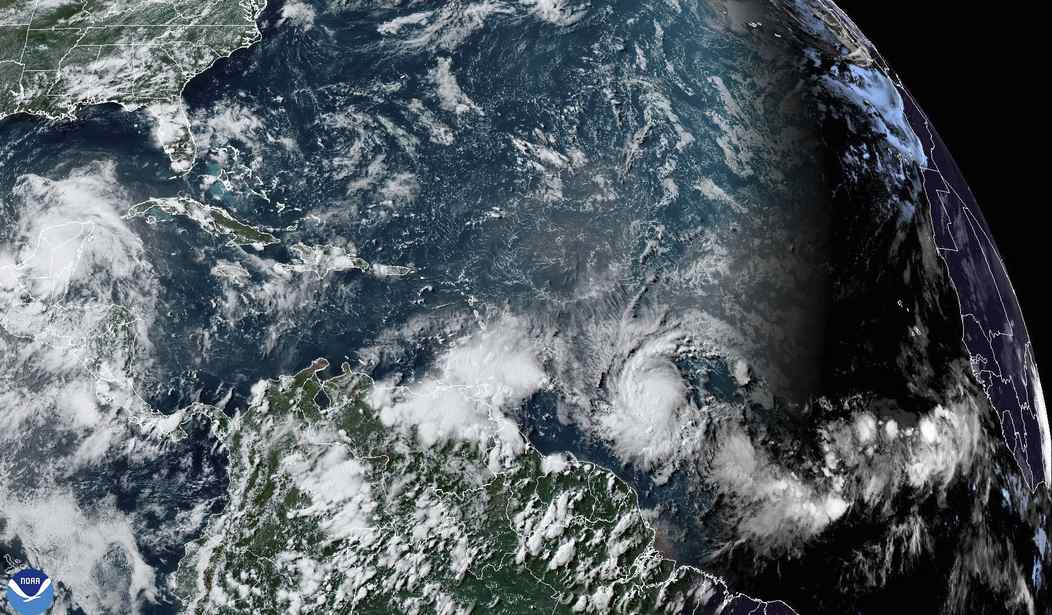Science is never settled. Not climate science, nor any scientific inquiry. Science is a tool, a method of collecting and examining data, forming and testing hypotheses, and deriving theory from the results.
Any scientific inquiry, then, is always tentative and subject to new data. Even climate science, despite the claims from the legacy media and climate scolds that the "science is settled." And now, in the world's southern oceans, just such a new data point is being examined, and it's one that will cause not oceanic warming, but cooling, as Charles Rotter writes in a new op-ed at Watts Up With That:
Ah, the marvel of modern climate science. For decades, we’ve been reassured that climate models are finely tuned instruments of prediction, capable of telling us what our planet will look like in a hundred years. But every so often, like a plot twist in a mediocre whodunit, we discover a brand-new “game-changing” variable. Enter methanethiol (MeSH), the newly crowned darling of aerosol cooling over the Southern Ocean.
According to a recent study published in Science Advances, MeSH—a sulfur compound previously relegated to obscurity due to its reactivity—is now recognized as a key player in climate cooling.
The discovery shows that emissions of MeSH, derived from marine biological activity, enhance the sulfate aerosol burden by up to 70% over the Southern Ocean. These aerosols scatter sunlight and cool the atmosphere, reducing the radiative bias of climate models in this region. Oh, and this isn’t a minor tweak. We’re talking about a 28% boost in the direct radiative effect of aerosols over a vast area. Oops, missed that one for decades.
Here's the actual study, and its abstract is illustrative:
Ocean-emitted dimethyl sulfide (DMS) is a major source of climate-cooling aerosols. However, most of the marine biogenic sulfur cycling is not routed to DMS but to methanethiol (MeSH), another volatile whose reactivity has hitherto hampered measurements. Therefore, the global emissions and climate impact of MeSH remain unexplored. We compiled a database of seawater MeSH concentrations, identified their statistical predictors, and produced monthly fields of global marine MeSH emissions adding to DMS emissions. Implemented into a global chemistry-climate model, MeSH emissions increase the sulfate aerosol burden by 30 to 70% over the Southern Ocean and enhance the aerosol cooling effect while depleting atmospheric oxidants and increasing DMS lifetime and transport. Accounting for MeSH emissions reduces the radiative bias of current climate models in this climatically relevant region.
There's a lot of scientific talk there, but in summary, there is a big influence from a hitherto unevaluated source, and it's enhancing oceanic cooling, not warming.
See Related: More Green Lunacy - This Time From the British Army
Pentagon Official Says Ranks in Jihadist Groups on the Rise Because...Climate Change?
What can we derive from this incident? A couple of things.
First, this is how the scientific method is supposed to work. An influence that was previously understood was examined more thoroughly, and its effects on the system were evaluated. New data either confirms or changes hypotheses, and this data changed a lot of assumptions about MeSH, confirmation of these new assumptions will, again, have to be evaluated. Science works this way. It's always tentative.
Second, we place too much stock in climate modeling. The Earth is vast, complex, and chaotic, and our understanding of many of the planet's systems, such as climate, is largely beyond our ken. Any computer models we can concoct are laughably crude by comparison. What's more, many of these systems, like climate, are, to a degree, self-correcting. A warmer climate increases plant growth, which can increase humidity and cloud cover in some areas, and we might also notice that plants, especially trees, are also massive carbon sinks. Seated as I am now on the edge of the great subarctic taiga that circles the Northern Hemisphere, I need only look out the window to see a lot of carbon taken up in the form of the birches and black spruce that surround our homestead.
Third, too many of the claims around climate science in particular are agenda-driven, not fact-driven. We can confirm this by noting that there is no data point, no new information that would cause climate scolds to admit they are wrong, and that there is no reason to give up our comfortable, technological lifestyle in the nebulous claims of "climate change" activists.
Science, applied properly, doesn't work that way. It's always open to new information and new interpretations. That's what's going on with this study of the effects of MeSH. That's not what is going on when John Kerry flies off to global climate conferences in his private jet so he can finger-wag at the rest of us over our carbon footprints.














